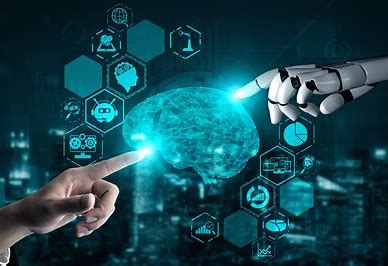The future of Artificial Intelligence (AI) is both exciting and unpredictable. AI has already made significant advances in fields such as healthcare, finance, and transportation, and its potential applications are virtually limitless. However, as AI continues to evolve and become more sophisticated, there are also concerns about its impact on society and the workforce.
One of the most promising applications of AI is in the field of healthcare. AI-powered systems can help physicians diagnose diseases more accurately and quickly, identify potential drug interactions, and even predict patient outcomes. They can also assist in drug discovery and development by analyzing vast amounts of data to identify potential drug candidates.

In the future, AI may be able to diagnose and treat diseases in ways that were previously unimaginable. In finance, AI is being used to detect fraud, predict market trends, and improve risk management. AI-powered chatbots are also being used to improve customer service and streamline financial processes, such as loan applications and investment management. In the future, AI may be able to provide personalized financial advice and help individuals make better investment decisions. Transportation is another industry that is being transformed by AI. Self-driving cars are becoming more common, and AI is being used to optimize traffic flow and reduce congestion.

AI-powered systems can also monitor and predict maintenance needs for vehicles, reducing downtime and improving safety. In the future, AI may be able to revolutionize transportation by enabling us to travel more efficiently and safely. One of the biggest concerns about the future of AI is job displacement, as machines take over tasks that were previously performed by humans. However, some experts argue that AI will actually create more jobs than it displaces, particularly in fields such as healthcare and education. In the future, AI may be able to assist teachers in developing personalized learning plans for individual students, or help doctors diagnose and treat patients more efficiently. Another concern about the future of AI is privacy, as AI systems collect and analyze vast amounts of personal data. However, there are also opportunities for AI to enhance privacy and security. For example, AI-powered systems can detect and prevent cyber-attacks, or help individuals manage their personal data more effectively. In order to realize the full potential of AI, it is important to ensure that it is developed and deployed in an ethical and responsible manner. This includes ensuring that AI systems are transparent and accountable, protecting individual privacy, and promoting diversity and inclusivity in the development of AI technologies.

One of the biggest challenges facing the future of AI is ensuring that it is aligned with human values and goals. This requires a deep understanding of human psychology, as well as an awareness of the potential unintended consequences of AI systems. As AI becomes more advanced and complex, it is likely that we will need to develop new ethical frameworks and regulatory structures to ensure that it is aligned with human values and goals. In conclusion, the future of AI is both exciting and unpredictable. AI has the potential to transform industries such as healthcare, finance, and transportation, and its potential applications are virtually limitless. However, there are also concerns about its impact on society and the workforce, as well as its potential to infringe on individual privacy. To ensure that the future of AI is aligned with human values and goals, it is important to develop and deploy AI in an ethical and responsible manner.







